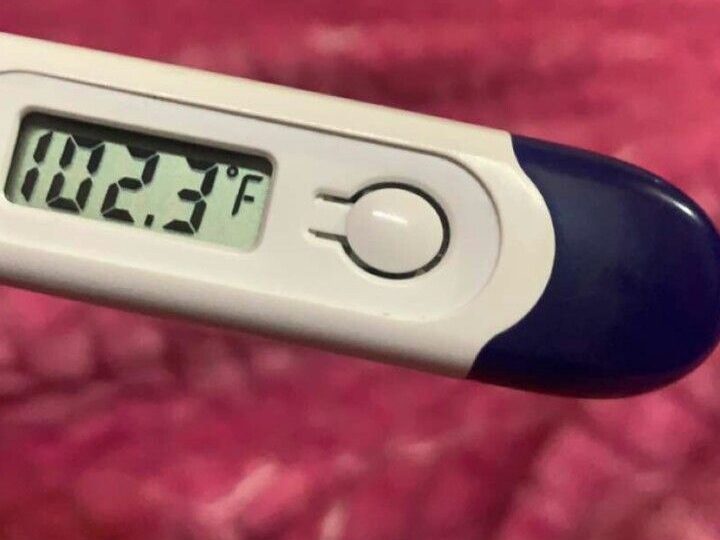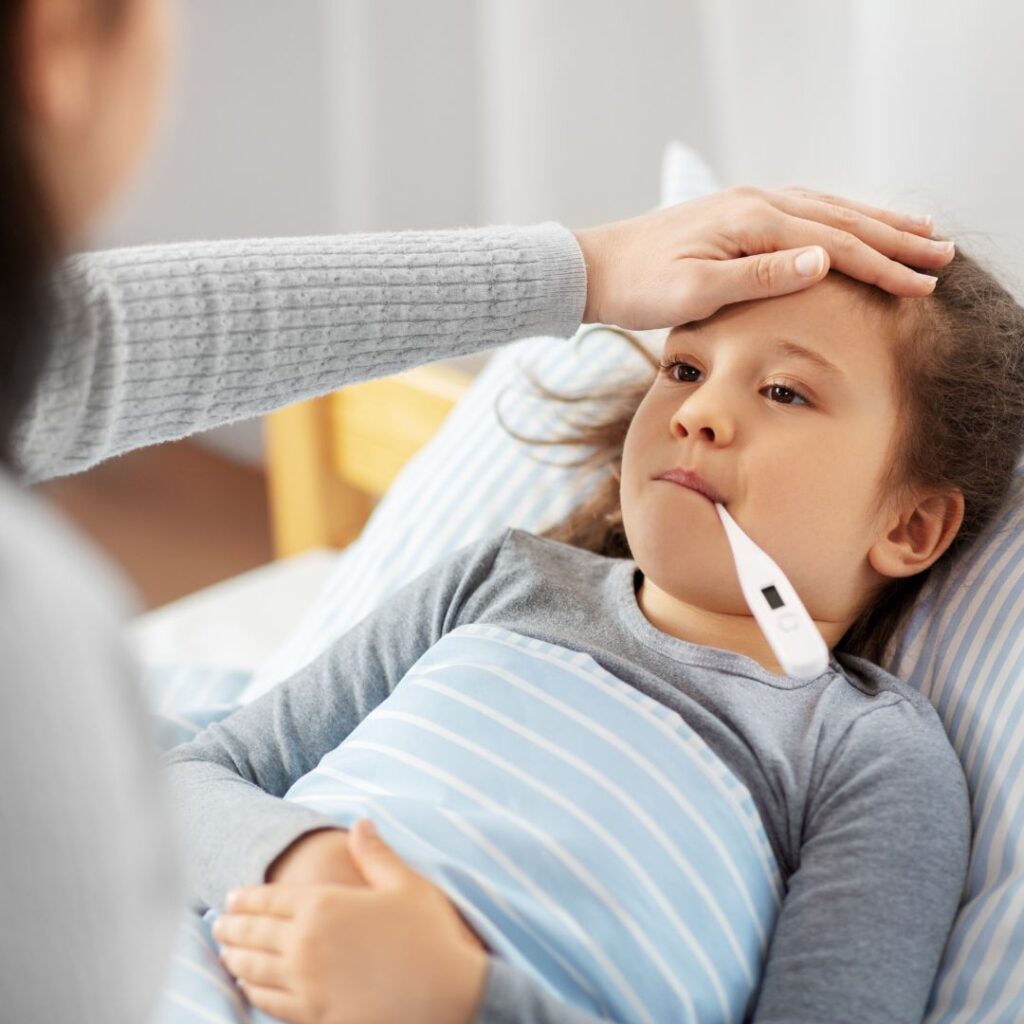What is a fever?
When the body’s temperature is above 100.4 degrees Fahrenheit – is basically a sign that body is fighting off an infection.
Usually fever is not a topic of concern for the young and adults, though a little rise in temperature than usual, may be a matter of concern in case of infants.

Symptoms
The average temperature of body is 98.6 F(37 degree Celsius). When temperature recorded is more than 100 F(37.8 degree Celsius) is considered as fever. Apart from rise in body temperature, the symptoms may be following:
- Muscle ache
- Headache
- Shievering
- Dehydration
- General weakness
- Loss of appetite

A kid in fever
Causes
When your immune system responds to disease, the hypothalamus( part of the brain which takes care the temperature management of the body) can set your body temperature higher. This prompts complex processes that produce more heat and restrict heat loss.
It might be caused by a viral infection, a bacterial infection, heat exhaustion, inflammatory condition as rheumatoid arthritis, medication or drug side effect, or some immunizations such as diphtheria, tetanus or pneumococcal or COVID vaccine.
When to see a doctor?
A fever is a particular cause for concern in infants and toddlers. Call your doctor if
- Younger than 3 months old and has a rectal temperature of 100.4 F (38 C) or higher
- Between 3 and 6 months old and has a rectal temperature higher than 102 F (38.9 C) or has a lower temperature but seems unusually irritable, sluggish or uncomfortable.
- Between 7 and 24 months old and has a rectal temperature higher than 102 F (38.9 C) that lasts longer than one day but shows no other symptoms. If your child also has other signs and symptoms, such as a runny nose, cough or diarrhea, you can call sooner.
There is no cause of worry in case of young if is responsive, If the young is making eye contact, reading and expressing the facial expressions, playing and drinking fluid. Call a doctor if
- Is listless, confused or has poor eye contact with you.
- Is irritable, vomits repeatedly, has a severe headache, sore throat, stomachache or other symptoms causing a lot of discomfort.
- Has a fever that lasts longer than three days.
- Has a seizure associated with the fever. Call doctor immediately if the seizure lasts more than five minutes or your child doesn’t recover quickly.
In case of adults call a doctor if
- Severe headache
- Rash
- Unusual sensitivity to bright light
- Stiff neck and pain when you bend your head forward
- Mental confusion, strange behavior or altered speech
- Persistent vomiting
- Difficulty breathing or chest pain
- Abdominal pain
- Pain when urinating
- Convulsions or seizures
Prevention
Here are some tips that can help to prevent fever by reducing to infectious diseases:
- Get vaccinated
- Follow public health guidelines
- Wash your hands often and teach your children to do the same
- Show your children how to wash their hands thoroughky
- Carry hand sanitizer with you
- Try to avoid touching your nose, mouth or eyes
- Cover your mouth when you cough and your nose when you sneeze
- Avoid sharing cups, water bottles and utensils
Conclusion
Fever does not necessarily need to be treated, and most people with a fever recover without specific medical attention. Although it is unpleasant, fever rarely rises to a dangerous level even if untreated.
